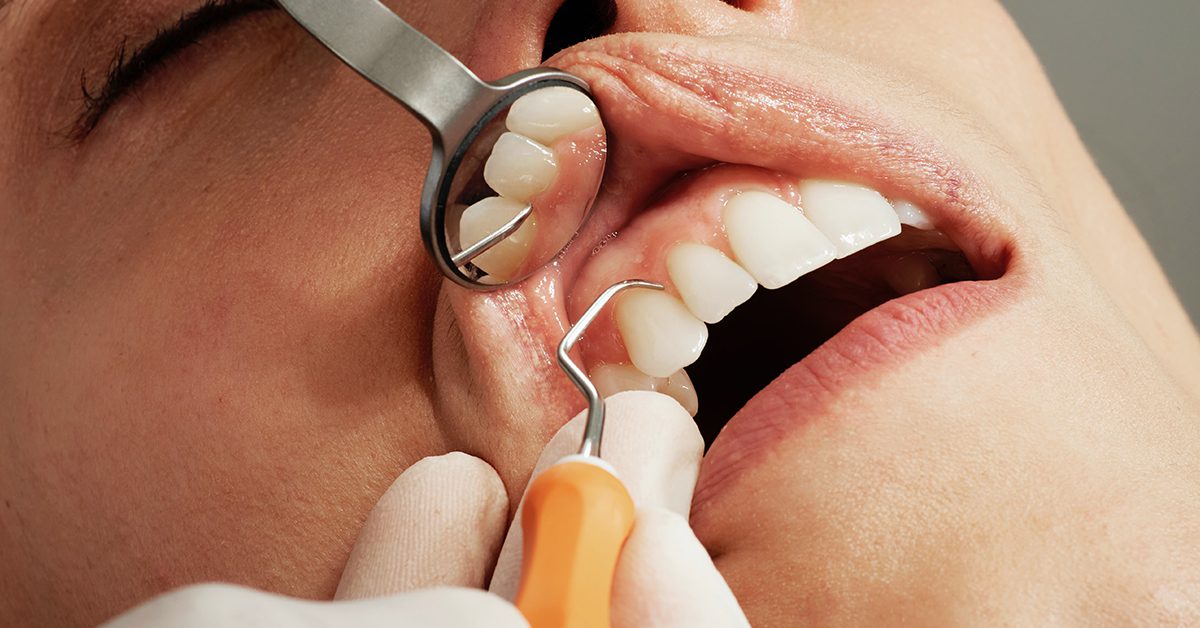Periodontal disease, also known as gum disease, is a common dental condition that occurs when bacteria in the mouth infect and damage the tissues that support the teeth. While many people are aware of the potential consequences of gum disease, such as tooth loss and bad breath, fewer people realize that there is a connection between gum disease and heart disease. As your trusted dentist, Advanced Indiana wants you to know how periodontal disease is connected to heart disease.
How Gum Disease Affects the Heart
There are several ways in which periodontal disease may contribute to the development of heart disease. One of the main ways is through inflammation. Gum disease causes inflammation in the gum tissue, which can spread to other parts of the body, including the tissues of the heart. The same proteins and bacteria causing your gums to flare up travel through the bloodstream, eventually making their way to your heart and attacking your heart tissue. Eventually, you can begin to experience cardiovascular problems, such as arterial plaque build-up, blood clots, and heart attacks.

Other Health Risks
Gum disease hasn’t just been linked to heart disease. Studies suggest that people with gum disease are also at an increased risk of developing other conditions, such as diabetes and high blood pressure. Both of these added factors can lead to heart disease. Furthermore, people with diabetes are more likely to develop gum disease, which in turn can make it more difficult to control blood sugar levels. As you can see, your dental health has a major impact on your overall physical health and can have serious consequences if not cared for properly.
3 Ways to Reduce Your Gum Disease Risks
The good news is there are ways you can reduce your risks of gum disease and heart disease.
Practice Good Oral Hygiene
One of the most important things people can do is practice good oral hygiene. This means brushing twice daily, flossing at least once a day, using mouthwash regularly, and visiting your dentist at least twice a year. You should also be aware of early signs of gum disease, such as red or swollen gums, bleeding gums, and bad breath. If you notice any of these happening, it’s time to schedule a dental appointment.
Avoid Tobacco Products
Another way you can reduce your risk of gum disease and heart disease is by avoiding tobacco products. Smoking or using tobacco can increase your risk of health issues, especially heart and gum disease. So, if you’re an avid smoker, quitting is the best way you can reduce your chances of dental, heart, and lung problems in the future.
Manage Existing Health Conditions
It’s also important that you manage any existing health conditions. Your overall health directly affects your oral health and vice versa. So, by managing any of your other health conditions properly can help reduce your risk of developing gum or heart disease. Taking a holistic approach to your health not only makes you healthier but also improves your mood, your life, and your relationships.
Let’s Prevent Periodontal Disease and Heart Disease Together
Your oral health matters to our entire staff. We know the risks involved with not caring about your dental health, which is why we strongly recommend you don’t skip any visits or cleanings. We can also spot the signs of oral cancer. So, whether you’re looking for a general dentist, restorative care, or even emergency dentistry, contact Advanced Indiana today!
Photo by lafayett zapata montero on Unsplash
Photo by Caroline LM on Unsplash

